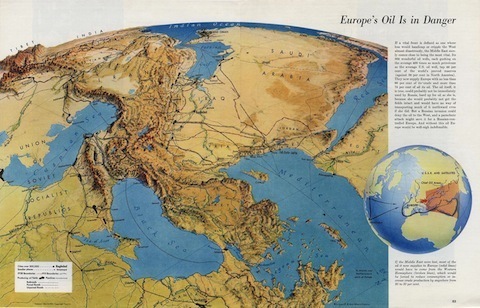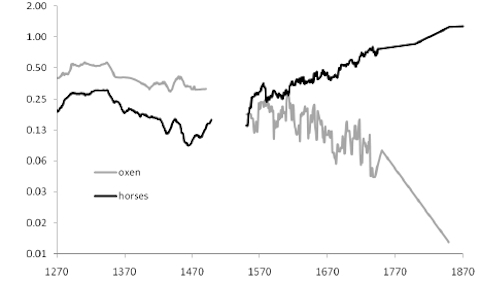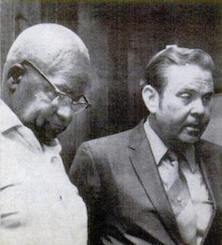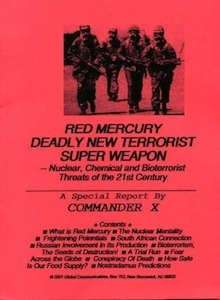Brendan I. Koerner's Blog, page 54
December 13, 2010
Pilolevu in the Sky with Diamonds
Somewhat lighter-than-usual posting these next three days, as I hack through yet another killer Wired deadline—the last major work task of an exhausting 2010. I was tempted to just toss up a few YouTubes between now and Thursday morning, but that wouldn't be very sporting. So I will instead offer some quick hits about topics near-and-dear to Microkhan's heart, starting with a twofer about the satellite business and the Kingdom of Tonga.
For those who don't follow politics in the South Pacific, Tonga has recently been teetering toward something resembling a democracy—albeit one still dominated by the nation's aristocracy. One of the figures who seems likely to retain a good deal of power is Princess Pilolevu Tuita, the king's sister and the chairperson of Tongasat, Tonga's dormant satellite company. Yes, the tiny nation has a stake in the space race, though mostly due to the machinations of a Swedish-born telecommunications executive who dreamed of using Tonga's political privileges to make a fortune. The whole sad story is here, including this snippet about how the princess was coaxed into heading up Tongasat:
Tuita has always claimed her involvement in Tongasat was party of God's plan for Tonga to lead the way in Christianising China. It was why Tonga switched its diplomatic recognition from Taiwan to Beijing and it moved Tongasat to Hong Kong.
"I believe that God invented us to do this work otherwise we could have become just another foreigner knocking on doors in Beijing for years without having a chance to meet the leaders of China."
Track Tonga's lone satellite here. No idea what purpose it's currently serving, though it does appear to be making a nice figure-8 pattern above Sri Lanka these days.
December 10, 2010
The Picasso of Cartography

I distinctly remember the first time I was surprised by a geographical truth that ordinary maps conceal. I was about ten years old, and thought of myself as pretty sharp when it comes to map-related matters. Seeking to impress my pops with my knowledge, I mentioned at the dinner table one night that Maine was the northernmost state in the Lower 48. He quickly corrected me, and ran to fetch an encyclopedia volume to prove his point. Sure enough, the flat map by our classroom blackboard had lied to me: the northern tip of Maine is on the same latitude as Seattle's southern suburbs. Rainy Washington, rather than icy Maine, wins the prize.
I might not have embarrassed myself like that if Richard Edes Harrison had been allowed to have a greater impact on our educational system. A nearly forgotten legend of cartography, Harrison made his name creating beautifully detailed maps for Fortune throughout the magazine's 1930s and '40s heyday. (The graphic-design geniuses at my employer Wired are much in his debt.) Harrison's masterstroke was to recognize how aerial intelligence had changed the art of mapmaking, revealing the contours of a planet that defies our species' natural prejudices regarding direction. This 1944 LIFE profile describes his special knack for defying expectations:
In a perspective map a part of the world is seen from a vantage point high above the earth so that the distances draw together in perspective, as they might to an incredibly farsighted man poised at an altitude of many thousand miles. Perspectives are not new to map technique but they have rarely been done so accurately and artfully as Harrison does them. One of their special advantages lies n the way they break the cartographic convention of showing the world with the top of the map inevitably north, the bottom inevitably south. Although this convention is useful, Harrison feels is is grossly overdone. The perspective maps are based on the obvious truth that the shapes of countries and continents change their look when the point of view changes…
Anybody can improve his geographical sense, Harrison says, simply by taking a map and turning it upside down or sideways. Harrison is always up in arms against the academic cartographers who stubbornly refuse to break away from conventions. He is also thoroughly annoyed at careless American who refuse to see fact that maps show them. He has found, for example, that most people are utterly surprised when told that all of South America lies east of Jacksonville, Fla. He has also discovered that almost everybody will give him two-to-one odds that Venice is south of Vladivostok (it is actually 150 miles farther north).
I do wonder about the particular mental gift that allowed Harrison to be such a groundbreaker in his chosen profession. I think it can probably best be characterized as spatial intelligence—an innate sense of how objects relate to one another in three dimensions. In the sporting realm, he might have made a very fine stock-car racer.
Another great Harrison map, of 1930s Ethiopia, is available here.
December 9, 2010
Hard Times
Not to tease too much, but I'm getting really excited 'bout this secret project I'm wrapping up. Details to come shortly, I promise—all should be public right after the New Year, if not a little sooner. In the meantime, though, I can only hint at the nature of the yarn: It involves a son of Appalachia who started off life as a child coal miner, and ended up a much-revered musical legend.
Given how my protagonist spent his formative years, I've spent a lot of time researching the hardships faced by coal miners in the early twentieth century. That line of inquiry alerted me to the existence of Misère au Borinage, a silent 1933 documentary often touted as the best coal-mining film of all time. Not sure I agree with that assessment, but it is fascinating to see how Wallonian miners operated during the Great Depression. Suffice to say that ever since seeing clips of this movie, I have felt super-guilty about the relative luxury of my own working life. I'm sure these miners would have killed for paying gigs that entailed sitting in padded chairs and lifting nothing heavier than a 13-inch MacBook Pro.
A comprehensive list of coal-mining films can be found here. Not many comedies on that list.
December 8, 2010
The Waning of Oxen

Putting the finishing touches on a long-gestating major project this a.m., so just a quickie before I get back to ironing out some word-choice matters. The graph above comes from the much buzzed-about paper estimating that per-capita GDP in late Medieval England was around $1,000 in 1990 dollars—an estimate that, if accurate, would mean that the Joe Sixpacks of 1600s England were better off than contemporary residents of Burundi and Niger. I'm skeptical of this claim, primarily because the paper itself (PDF) makes no such grandiose claims—it was the public-relations department at Warwick University that added that extrapolation in its press release.
Still, the research makes for fascinating reading, and the authors were kind enough to include a bevy of helpful graphs and charts. My favorite is the horses-versus-oxen illustration I've selected for your viewing pleasure. Why did the English kiss off their oxen so rapidly after 1700 or thereabouts? Some clues are to be found in this 1989 article about the rise of the horse:
Horses often represented a much smaller capital investment than oxen, a matter of key importance for peasant cultivators in particular. This was because oxen always retained their value as meat, no matter how old they were, while elderly horses, due to the well-known and widely observed taboo on eating horseflesh, had little more value than their hides. Consequently, compared to oxen, the price range for horses was exceedingly wide – from over £100 for a prized war-horse all the way down to as little as 2s. for an old nag that may have been blind or lame but was still capable of some useful work. The horse trade in fact has often been compared to that for used cars today. As Joan Thirsk put it over a decade ago, '…there is a car within the price of everyone; you can pay £20 or you can pay £10,000′. The same applied for horses in the medieval period, where the wide variation in prices for the animals allowed peasants to acquire cheap horses much as the 'banger' trade in cars allows teenagers to do the same today.
Gadget development also played a role: The invention of the padded horse collar doesn't get nearly enough adulation in geek circles.
December 7, 2010
A Clear Conscience
 Whenever my work involves looking at rolls of decades-old microfilm, I inevitably stumble across a handful of tremendous yarns that have been lost to time. Such was the case this past Saturday, as I whiled away the hours scrolling through old copies of The San Diego Union-Tribune. Lazily panning across the pages in search of a few relevant scraps of info, I fortuitously encountered the strange story of Lonnie Cross. In 1935, Cross got in a violent argument with his girlfriend, and a Good Samaritan named Edward Bozier tried to break up the altercation. The incident ended with Bozier dead from a stab wound to the skull, and Cross on the run—for the next 37 years. That stretch on the lam ended, however, when Cross suddenly decided to turn himself in:
Whenever my work involves looking at rolls of decades-old microfilm, I inevitably stumble across a handful of tremendous yarns that have been lost to time. Such was the case this past Saturday, as I whiled away the hours scrolling through old copies of The San Diego Union-Tribune. Lazily panning across the pages in search of a few relevant scraps of info, I fortuitously encountered the strange story of Lonnie Cross. In 1935, Cross got in a violent argument with his girlfriend, and a Good Samaritan named Edward Bozier tried to break up the altercation. The incident ended with Bozier dead from a stab wound to the skull, and Cross on the run—for the next 37 years. That stretch on the lam ended, however, when Cross suddenly decided to turn himself in:
Cross limped into the Duval County Sheriff's Offfice Wednesday night and said he wanted to "get right with the Lord" by confessing to killing a man 37 years ago.
In a jail interview yesterday, Cross said he had lived in New Orleans under the name Richard Mosley since 1937…Cross said he fled to Savannah [after the murder], but met too many people who knew him and went to New Orleans. A longshoreman in Jacksonville and Savannah, he followed the same trade on the banks of the Mississippi River until an auto accident on Canal Street…
"I think God blessed me that I didn't get killed," he said. "I didn't get religion right then, but one day, just like laying down my coat, my conscience came up on me. The thoughts of the Lord came on me."
Only recently, he said, the spirit of the Lord moved him to clear up his old trouble. "It said, 'You'll feel better to clear this up,' and I feel better." Cross said. "I'm bound by four walls in this jail, but it is up to the Lord whether I will go free again."
Despite Cross's confession, he was freed from jail after a few weeks and suffered no further punishment. A big reason for that was the fact that the police couldn't find any corroborating evidence; everyone from Cross's Casketville days was either dead or gone, and the police hadn't bothered to retain any physical evidence.
Cross's tale brings up a lot of issues regarding the philosophy of state-mandated punishment. It seems like he was let off the hook because of his religious conversion. But many incarcerated criminals have claimed similar spiritual transformations—why do they tend to be treated more disdainfully by the system? And is a guilty conscience really as grave a punishment as the loss of physical freedom? Edgar Allen Poe might have thought so, but I reckon that most everyone else will disagree.
December 6, 2010
You Don't Have to Be Alone
Microkhan has a bunch of A-plus material lined up for the coming weeks, including looks at gossip in Borneo, Korean marathoners, chess hustling, and Orissan labor songs. But today's a wash due to a Wired deadline, so please ease into your Monday with a humble musical offering: New Birth's "You Don't Have to Be Alone." Killer lead vocals on this one, plus I can never resist a musician in a polyester cape. This is a band that deserves to be part of the soul canon, though not for its cover art.
December 3, 2010
"Beef Plus Buns…Equal Bucks"
There was a time not long ago when slapstick comedies like Hamburger…The Motion Picture seemingly occupied half the multiplexes in America. The cinematic formula, arguably pioneered by the much-maligned Police Academy heptalogy, was devilishly simple: Throw a bunch of wacky, hormonally charged characters into close quarters and let physical mayhem ensue. I was squarely in the target demographic when these films had their heyday, and forked over many a dollar to watch fat people fall of helicopters and buxom blondes reveal their bras.
In hindsight, of course, one must admit that most of these movies were really, really terrible—and thus ideal fodder for our semi-regular Bad Movie Friday feature. Hamburger…The Motion Picture is truly the bottom of the barrel, and not only because of those stupid ellipses in the middle of the title. This is the perfect example of a film that was almost certainly dreamed up by a high-as-a-kite studio executive who drove by the All American Burger on Sunset Boulevard and thought to himself, "You know kids like? Hamburgers!" Even the great Dick Butkus couldn't save this horrific mish-mash, which inspired a Variety review that could never be written in the post-9/11 world:
To judge Hamburger…The Motion Picture fairly requires certain relative standards of the filmgoing experience. If, for example, the theater were captured by terrorists and a member of the audience killed every 20 minutes for eight days, that would be a bad filmgoing experience. Without the terrorists, Hamburger is merely a poor filmgoing experience.
Fortunately, appearing in this turkey didn't stymie the career of handsome leading man Leigh McCloskey, now primarily known as an artist who recently collaborated with Flying Lotus on Cosmogramma. No one from the rival Hot Dog…The Movie appears to have attained such lofty creative heights.
December 2, 2010
That Baffling Last Act
 Perhaps I am bucking for a karmic penalty here, but let me take a brief moment to speak slightly ill of the dead. Neutron-bomb inventor Samuel T. Cohen, who passed away four days ago, was always a controversial figure, and not just because of his role in the atomic-weapons industry. As previously highlighted on Microkhan, Cohen was prone to making wildly exaggerated statements about his own genius and importance, and he obviously operated with a massive chip on his shoulder. But even Cohen opponents could not deny his technical brilliance—the Cold War-era RAND Corporation didn't tap dummies for its inner circle.
Perhaps I am bucking for a karmic penalty here, but let me take a brief moment to speak slightly ill of the dead. Neutron-bomb inventor Samuel T. Cohen, who passed away four days ago, was always a controversial figure, and not just because of his role in the atomic-weapons industry. As previously highlighted on Microkhan, Cohen was prone to making wildly exaggerated statements about his own genius and importance, and he obviously operated with a massive chip on his shoulder. But even Cohen opponents could not deny his technical brilliance—the Cold War-era RAND Corporation didn't tap dummies for its inner circle.
Cohen may have longed to be regarded as an equal of J. Robert Oppenheimer and Edward Teller, but he did his legacy no favors in his waning years by constantly spouting off about a substance of dubious provenance: red mercury:
In recent years, Mr. Cohen prominently warned of a black market substance called red mercury, supposedly capable of compressing fusion materials to detonate a nuclear device as small as a baseball — ideal for terrorists. Most scientists call the substance mythical, and stories about it, many circulating on the Internet, are widely regarded as spurious.
Indeed, red mercury last made news two summers ago, when rumors swirled around Saudi Arabia that the substance was embedded in Singer sewing machines. Before that, it figured prominent in several smuggling hoaxes centered in the former Soviet Union. Cohen's insistence on the veracity of the red mercury threat is akin to Freeman Dyson suddenly warning the world about the illicit admantium trade.
The question, then, is why a man of Cohen's obvious intellectual prowess could be so easily duped by hokum. And I have to wonder whether his gullibility was simply a product of the aging process, which has been known to diminish critical thinking skills far more than ambition. Cohen wanted to stay relevant, and that meant finding a crusade that would set him in opposition to the establishment that had never embraced his life's work. Unfortunately, Cohen settled on a cause of little worth, perhaps because the years had worn away his mental acuity. (He doesn't appear to have embraced the red-mercury issue until his late 70s.)
This isn't the first time that an accomplished, outspoken figure has tarnished their legacy by touting false theories in their golden years. Cohen's tale reminds me of the final years of Pierre Salinger, the former White House official whose name is now synonymous with conspiratorial nuttiness. Sad stuff, but I do understand the impulse. No one wants to admit that their heyday is over, and so they grasp for ways to stay in the conversation. And that can lead to really poor decisions by otherwise brilliant folks.
December 1, 2010
"The Juice Come Thicker Than Sunny Delight"
Putting the finishing touches on a soon-to-be-revealed major project this morning, so just a quick slice of sonic grandeur to get your day started. Laugh if you must at this band's name, but rest assured that many of the finest minds in hip-hop history can see beyond the cheesy psychedelic moniker. The Electric Prunes' "General Confessional," produced by the real David Axelrod, has been memorably sampled by the Beatnuts, Black Moon, Madlib, and Rampage, among many others. It's easy to see the appeal: The song oozes a natural, silky menace, as if it was recorded in an abandoned Transylvanian church after everyone in the band downed some high-quality asinthe.
Fun fact about The Electric Prunes: Kenny "Danger Zone" Loggins was once a member, during his alleged rock-'n-roll phase. I wonder how many times Loggins' work has been sampled. I'm guessing zero.
November 30, 2010
Jimmy Rasta on the Skids

Try as I might to keep apprised of the political situation in the Solomon Islands, I regrettably lose track of the thread from time to time. Thanks, then, to the commenter who recently showed up to offer his two cents regarding Jimmy "Rasta" Lusibaea, the former ethnic militia leader who had become the Solomon Islands' fisheries minister. Our Microkhan visitor from the South Pacific is evidently not a fan:
[Lusibaea] is not capable and dumb, he is just a wild boar let loose with alot of weight to throw around….he wont make a good politician….how do you think he became wealthy,,,by the barrel of a gun of course..he stole, he is a thief, and unworthy of a position in the Big House…he sucks man!
I wondered why this heartfelt comment appeared a few months after the post went live. A quick news search revealed all: Lusibaea was recently convicted for kneecaping an unconscious man a decade ago. He was sentenced today to roughly 33 months in prison, a pronouncement that caused his youthful supporters to run roughshod through the streets of Honiara. The political fallout may be worse, however:
The sentencing bars Lusibaea from acting as an MP and puts the government, led by Danny Philip, under pressure. Mr Philip now has 24 members, while the opposition, led by Steve Abana, has 23. Three by-elections are likely to take place next month after two other MPs died shortly after elections in August.
The stakes here are unusually high, given the Western world's interest in tapping the Solomon Islands' gold resources. But it's tough to see how foreign business interests can have much impact on tiny by-elections. As is so often the case with embryonic democracies, the entire experiment may ride on the ability of local political bosses to deliver votes—a service that will come with a heavy price tag, no doubt.
(Image via The Sydney Morning Herald, by James Brickwood)




